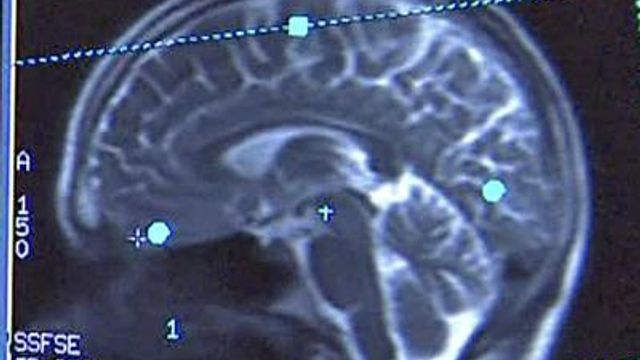Researchers delve into younger minds for Alzheimer's study
Researchers are looking for the earliest signs of Alzheimer’s disease so that it might be stopped or slowed down. Doctors have started studying the brains of younger people who have a genetic risk for the disease.
Posted — UpdatedAt Duke University Medical Center, 24 students took a functional MRI test where they look at several line drawings. They came back later in the day to perform the exercise again.
“They were making a decision about whether they remembered the item or not,” said Dr. Jeffrey Browndyke, of Duke.
The scan detected brain activity and focused on the medial-temporal lobe, the same area affected by Alzheimer's disease. That part of the brain is responsible for encoding memory, Browndyke said.
Browndyke said half the subjects carried the APOE 4 gene – a marker linked to an increased risk of developing Alzheimer's disease. The imaging showed a difference in brain activity.
The APOE group scored just as well, but their brain had to work harder to do it; which means the APOE gene “may be causing some fundamental changes in the brain earlier in the lifespan than we realized,” he said.
Browndyke said that doesn't mean those students have early signs of Alzheimer’s – or that they'll ever get it.
“It’s just that there are fundamental brain differences that we don't quite understand yet,” he said.
Further research will look at even younger ages – in adolescence and in infants. Researchers want to see if they have the same type of brain activity differences that they found in college-aged participants.
• Credits
Copyright 2024 by Capitol Broadcasting Company. All rights reserved. This material may not be published, broadcast, rewritten or redistributed.





